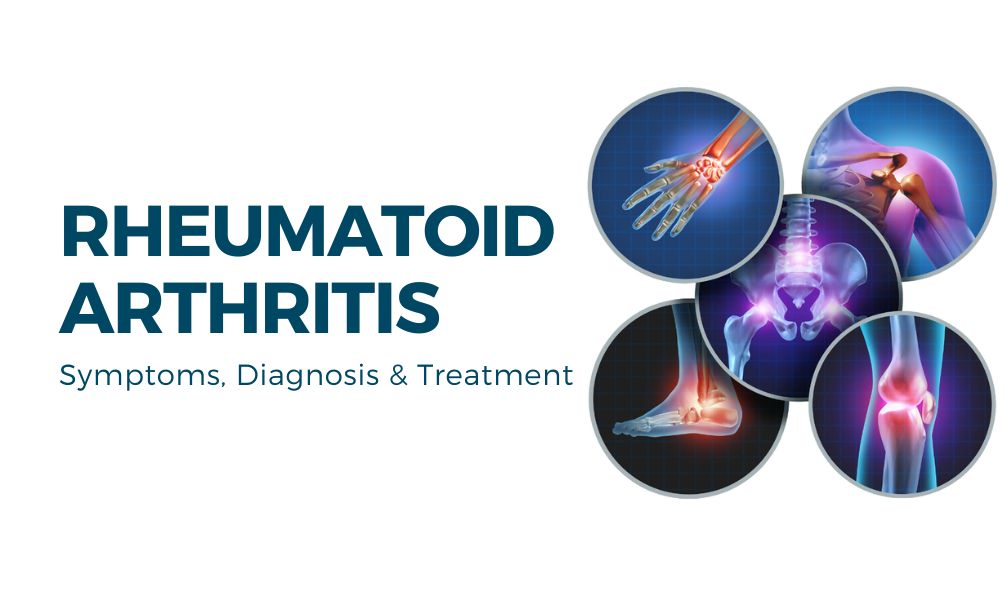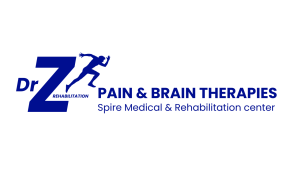
Overview
Rheumatoid arthritis is a complex condition that can have far-reaching effects. A chronic autoimmune disorder, it occurs when your body’s immune system mistakenly attacks its own tissues. Often leading to pain and inflammation in the joints. But also potentially impacting other systems such as the skin, eyes, lungs and heart.
For those living with rheumatoid arthritis, their joints can succumb to unrelenting swelling and discomfort. This chronic condition doesn’t just stop there it also inflicts other parts of the body. Over time including bone erosion and joint deformity that can lead to physical disabilities. Fortunately though, advances in medications have made treatment options much more promising than ever before.
Rheumatoid Arthritis Symptoms
Are you feeling stiff and achy in your joints? You may be experiencing the early signs of rheumatoid arthritis. Symptoms can include tender, swollen fingers or toes and morning stiffness that are worse after periods of rest. Fatigue, fever and loss of appetite are also possible indicators so if these sound familiar. It could be time to see your doctor for advice.
While joint swelling and pain are the most common indicators. Up to 40% of patients report signs and symptoms that affect far more than their joints. From eyesight issues due to inflammation in the salivary glands or blood vessels, to respiration problems caused by lung involvement. It is possible for people with RA experience a wide range of health effects from skin disturbances. All the way down bone marrow changes – making this autoimmune disease an unpredictable one. During flares periods if increased activity may cause greater discomfort. But there can also be times when things ease off as well which brings much needed relief. Long-term damage such as deformed/displaced joints is always something worth keeping an eye on though too.
Rheumatoid Arthritis Diagnosis
With a number of diseases exhibiting similar physical symptoms, it can be tricky to quickly identify an early diagnosis of rheumatoid arthritis. Your doctor will perform some key tests during the medical assessment such as examining your joints for swelling and redness, sensing reflexes in muscle strength which may bring you one step closer to understanding what’s going on with your body.
Blood Test
Rheumatoid arthritis can often be identified through a simple blood test, revealing elevated levels of ESR and/or CRP that indicate the presence of an inflammatory process. Additionally, looking for rheumatoid factors and anti-CCP antibodies in the bloodstream gives further insight into this mysterious disease.
Imaging Tests
Your doctor can utilize X-rays to monitor your journey with rheumatoid arthritis, while MRI and ultrasound tests will help them better evaluate the impact of this disease on your body.
Rheumatoid Arthritis Treatment
Rheumatoid arthritis has no cure, however early action is key to successfully managing symptoms. Numerous clinical studies have demonstrated treatment with the right medication known as disease-modifying anti-rheumatic drugs (DMARDs). It can improve a patient’s chance of reaching remission and escaping discomfort associated with rheumatoid arthritis.
Therapy – A Non-Surgical Treatment
If you’re experiencing joint pain, your physician can help put together a plan of action to get you back in motion. This may include physical or occupational therapy that will introduce exercises specifically tailored for improving the flexibility of painful joints and alternative methods to complete everyday tasks using less stress on those areas. Plus, some proactive tips like utilizing your forearms when picking things up.
Preserving your precious joints has never been easier. With the help of assistive devices, you’ll have no more stress in trying to complete mundane tasks. From kitchen knives with hand grips that save fingers and wrists from harm, to buttonhooks made just for dressing – there is a world of solutions available at catalogs or medical supply stores that make life simpler without compromising on movement.





